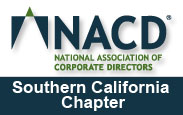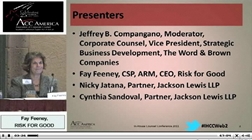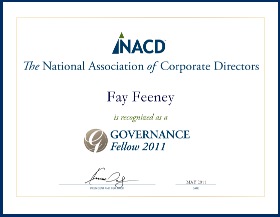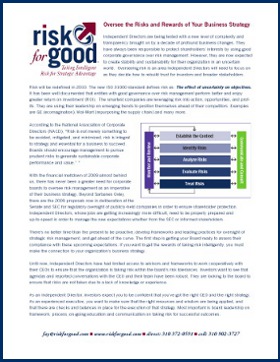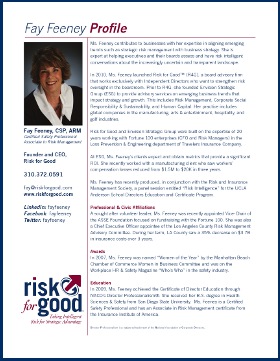 Yes, I’m here in Rio for the ICGN Annual Conference. Here are my remarks for the panel on Social Media and Corporate Governance. Let’s get this conversation on social media happening with CEOs and their boards. It is too important to building trust and transparency.
Yes, I’m here in Rio for the ICGN Annual Conference. Here are my remarks for the panel on Social Media and Corporate Governance. Let’s get this conversation on social media happening with CEOs and their boards. It is too important to building trust and transparency.
My Remarks:
Ola, Stephen, Santiago and the ICGN conference committee for including me in this amazing event. For the past 15 years I’ve been active in engaging the internet and social media for my business & personal development. As a result, my colleagues in corporate governance have labeled me the “Digital Whisperer”. Today I’d like to share some of my experiences and “lessons learned” with you.
We are early in the internet age. This 2nd generation of the internet (web 2.0) is where individuals, investors, activists and companies can use the web as a media platform to shape the perception of their company and their board. You control your own site, or blog, or tweet; and are able to control your own data. The importance of the company’s web site is well understood by most of us.
Less understood is the importance of interactivity, another key feature of web 2.0. Being “social” in the digital age means creating the opportunity for user-generated content on line, and using this interactive feature to exchange information. We know these applications such as: Facebook, Linked In, Blogs and Twitter.
In the first wave of the digital economy, the focus was on one-way conversations corporations were having with their customers. The marketing department was in charge of overseeing that information was carefully controlled and distributed. Marketers are known for talking, not listening.
We are now in the second wave of the digital economy. Two way connections will dominate with less hierarchy, not more hierarchy. Information about your company, its products, and its policies can no longer be carefully controlled and distributed. As you and your board become digital citizens, you will be leading socially enabled enterprises with your stakeholders, your board members, and your key investors.
Take a moment to think where you were 8 years ago in 2004 when Facebook was being launched. I was sitting with CEOs in their boardrooms briefing them on what I was seeing in their operations from a risk, safety, health, and environmental perspective.
I had limited time with them so my job was to inspire them to improve their profits by enhancing the safety and sustainability of their workplaces and products. This included focusing on the people, products, use of resources and supply chains that made them money. The way to focus on these audiences is to listen to them.
Investors, stakeholders, and the employees on the loading dock all have ideas for improvement and an opinion about the job management is doing. This has always been the case. What has changed is that now several platforms exist for these individuals to communicate their ideas and attitudes. They now find, nearly instantly, that these ideas and attitudes are shared by their peers. When their opinion captures the sentiment of others, then “word of mouth” becomes magnified at large scales with customers, employees, investors and activists. These events become opportunities or risks, and can quickly shape a company’s future.
The impact of social media on corporate governance is a new concept. It is not yet embraced by most boards. We are literally building the plane as we fly. My training and expertise is in risk management. For the last 8 years I have been applying fundamental principles of enterprise risk management to social media. Today I will share some of these findings. [Read more…]
